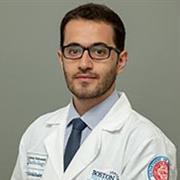Advances in Endovascular Therapy for Stroke Patients
Photo by FlyD on Unsplash
Research
Advances in Endovascular Therapy for Stroke Patients
Stroke related to large vessel occlusion (LVO) is a leading cause of disability and death worldwide. Endovascular therapy (minimally invasive procedures like catheterization done inside the blood vessels) has transformed the management of these patients. In 2015, several randomized trials showed the benefit of endovascular therapy compared with medical management in reducing disability in some patients, most of whom had small core infarction and presented to an emergency department within six hours of symptom onset. Evidence for the treatment benefit has also been extended to patients presenting within 24 hours of symptom onset, along with patients with large ischemic core infarct, and patients with basilar artery occlusion.
However, ongoing knowledge gaps remain including: an understanding of which patients with large ischemic infarct are more likely to benefit from endovascular therapy; the role of endovascular therapy in patients who present with low stroke severity scores on the National Institutes of Health Stroke Scale (NIHSS) or have medium or distal vessel occlusion (blood blockage); and optimal management of patients with underlying intracranial atherosclerotic disease.
In a review article in the journal Lancet, researchers from Chobanian & Avedisian School of Medicine and international collaborators examined the rationale of recent randomized trial designs and results that have proven the benefit of endovascular therapy, including reviewing current devices and addressing ongoing areas under study.
 Thanh Nguyen
Thanh Nguyen“Our paper is a contemporary update of the role of endovascular therapy (clot retrieval, rescue stenting) in the treatment of patients with acute ischemic stroke as well as patient selection criteria,” says corresponding author Thanh Nguyen, MD, professor of neurology, neurosurgery and radiology at the school.
Using a Medline database search, the researchers reviewed randomized clinical trials from 2015-24 that compared endovascular therapy to medical management for large vessel occlusion stroke. Medical management included thrombolytic drugs (drugs that would melt a blood clot), blood pressure medicine, and vascular risk factor management. They found randomized trials using a new generation of devices unequivocally confirmed the benefit of endovascular therapy over best medical treatment in selected patients.
They also found patient selection for endovascular therapy could be summarized by clinical and imaging criteria with a minimalist approach based on the evolving randomized evidence. “Most patients who present with a NIHSS score of higher than five and anterior circulation occlusion along with patients with an NIHSS of 10 or higher and basilar occlusions without extensive infarction on imaging, are good candidates for endovascular therapy up to the 24-hour window,” explains Nguyen, who also is a neurologist and Director of Interventional Neurology/ Neuroradiology at Boston Medical Center.
 Mohamad Abdalkader
Mohamad AbdalkaderAccording to the Mohamad AbdalKader, MD, associate professor of radiology at the school and co-author of the article, a remarkable shift has occurred in the care of LVO patients in the past decade. “Advances from clinical trial data, endovascular therapy devices and techniques, expansion in the indication for endovascular therapy and lowering of imaging barriers to endovascular therapy selection have improved our understanding of how to optimize the care of these patients,” adds AbdalKader who also is a diagnostic and interventional neuroradiologist at Boston Medical Center.
These findings appear online in the journal Lancet.